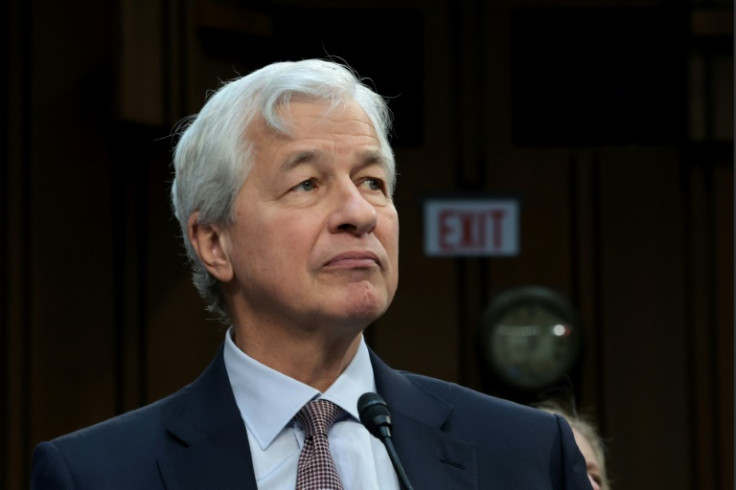JPMorgan Raises Recession Probability To 35% Amid Weakening Labor Market, Signs Of Job Cuts

JPMorgan Chase & Co. has raised its estimate of the likelihood of a U.S. recession by the end of 2024 to 35%, up from 25% at the beginning of July. The adjustment follows recent data indicating a sharper-than-expected decline in labor demand and initial signs of job cuts, according to a note from JPMorgan economists led by Bruce Kasman.
The economists maintained their prediction of a 45% chance of a recession occurring by the second half of 2025, Bloomberg reported.
The revised forecast comes as JPMorgan Chase CEO Jamie Dimon reiterated that there is a 35% to 40% chance of a "soft landing" for the U.S. economy, making a recession the most probable outcome. The modest increase in recession risk contrasts with a significant reassessment of the interest rate outlook.
JPMorgan now believes there is only a 30% chance that the Federal Reserve will maintain high interest rates for an extended period, down from a 50-50 probability two months ago.
With inflation pressures easing, JPMorgan anticipates the Fed will reduce rates by half a percentage point in September and November. The revised forecast aligns with Goldman Sachs Group Inc.'s recent update, which estimates a 25% probability of a recession within the next year.
JPMorgan's economists said a global recession would likely prompt swift and substantial easing measures from central banks.
In an interview with CNBC's Leslie Picker, Dimon said that his perspective on recession risks has remained consistent since February because of numerous uncertainties affecting the market, including geopolitical issues, housing, deficits, spending, quantitative tightening, and upcoming elections.
Despite warning of an economic "hurricane" since 2022, Dimon said the economy has performed better than anticipated. While credit card borrower defaults are on the rise, he said the U.S. is not currently in a recession.
However, Dimon questioned the Federal Reserve's ability to reduce inflation to its 2% target due to potential challenges like future spending on the green economy and military. But he expressed optimism that even in the event of a mild or more severe recession, the U.S. economy would manage.
But, there would be a significant impact on individuals who may lose their jobs, Dimon added.
© Copyright IBTimes 2024. All rights reserved.




















